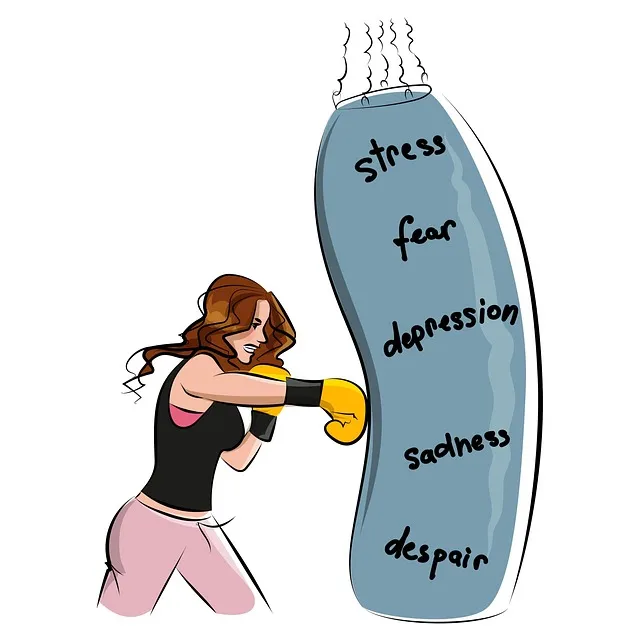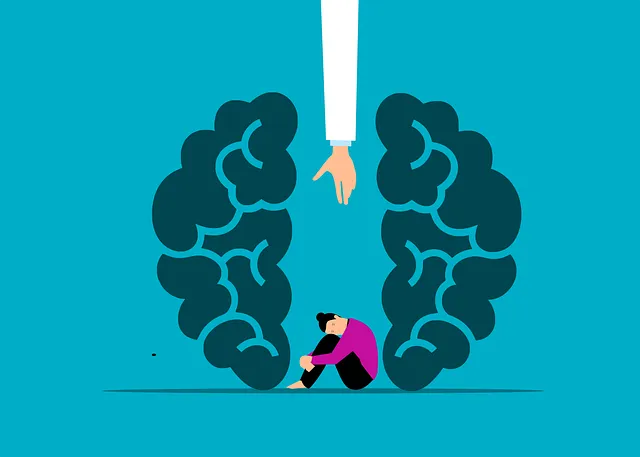In today's fast-paced world, accessible self-assessment tools like those offered by the Kaiser Permanente mental health phone number in Castle Rock are crucial for empowering individuals to manage their mental wellness. These tools provide initial insights into psychological states, guiding people towards appropriate support and promoting proactive resilience building. A robust assessment incorporates validated questionnaires and questions on burnout, work-life balance, stress management, job satisfaction, resilience, self-esteem, and social support, enabling tailored Mental Wellness Coaching Programs. Kaiser Permanente's commitment is evident through extensive resources and innovative tools like the Castle Rock phone number, combining technology with evidence-based practices for emotional healing and anxiety relief.
In today’s fast-paced world, prioritizing mental wellness is more crucial than ever. This article explores the development of mental wellness self-assessment tools, a vital resource for individuals seeking to understand their psychological well-being. We delve into the growing need for accessible assessments, highlighting key components for comprehensive evaluations. Through a case study focusing on Kaiser Permanente’s resources, we present an effective approach, offering insights that can be applied to similar initiatives, especially in areas like Castle Rock, where accessible mental health support is essential.
- Understanding the Need for Self-Assessment Tools in Mental Health
- Key Components of a Comprehensive Mental Wellness Self-Assessment
- Developing and Implementing Effective Self-Assessment Tools: A Case Study Using Kaiser Permanente's Resources
Understanding the Need for Self-Assessment Tools in Mental Health

In today’s fast-paced world, where mental health challenges are becoming increasingly prevalent, there is a growing need for accessible and effective self-assessment tools. These tools play a pivotal role in empowering individuals to take charge of their mental wellness, especially when professional help may not always be readily available or affordable, such as the resources offered by Kaiser Permanente mental health phone number Castle Rock. Self-assessments provide an initial glimpse into one’s psychological state and can serve as valuable indicators for seeking appropriate support, whether it’s through therapy, counseling, or community resources.
By utilizing self-assessment tools, individuals can proactively engage in resilience building and compassion cultivation practices, which have been proven to mitigate symptoms of various mental health disorders. Moreover, these assessments contribute to Mental Illness Stigma Reduction Efforts by encouraging early intervention and fostering a culture of open dialogue around mental wellness. They offer a confidential and convenient way for people to evaluate their emotional well-being, enabling them to make informed decisions about their mental health journey.
Key Components of a Comprehensive Mental Wellness Self-Assessment

A comprehensive mental wellness self-assessment tool should incorporate several key components to effectively gauge an individual’s psychological well-being and identify potential areas for improvement. Firstly, it must include a range of questions designed to assess emotional health, such as mood, anxiety levels, and coping mechanisms. This can involve scales or questionnaires that have been validated through research, like the PHQ-9 (Patient Health Questionnaire) for depression screening.
Additionally, the tool should consider factors related to burnout prevention, given its significant impact on mental wellness. Questions targeting work-life balance, stress management strategies, and job satisfaction are crucial in this regard. Integrating these aspects alongside more traditional psychological assessments allows for a holistic view of an individual’s mental wellness, akin to what professional services like Kaiser Permanente mental health phone number Castle Rock offer. Furthermore, including sections on resilience, self-esteem, and social support networks can provide valuable insights into the development of tailored Mental Wellness Coaching Programs.
Developing and Implementing Effective Self-Assessment Tools: A Case Study Using Kaiser Permanente's Resources

Developing effective self-assessment tools for mental wellness is a crucial aspect of modern healthcare, and organizations like Kaiser Permanente play a pivotal role in this process. Their extensive resources have been instrumental in creating comprehensive solutions to support individuals’ emotional well-being. One notable example is their mental health phone number in Castle Rock, which offers a direct line of communication for those seeking assistance.
By combining advanced technology with evidence-based practices, Kaiser Permanente has developed innovative self-assessment tools that aid in identifying and managing various mental health conditions. These tools focus on emotional healing processes and emotional regulation techniques, offering users valuable insights into their mental state. Furthermore, the integration of these resources facilitates anxiety relief strategies, ensuring individuals have access to immediate support and guidance.
Mental wellness self-assessment tools play a pivotal role in empowering individuals to take charge of their mental health. By incorporating essential components like accessibility, validity, and user-friendly design, as demonstrated by Kaiser Permanente’s resources, we can enhance early intervention and support. For those seeking guidance, the Kaiser Permanente mental health phone number in Castle Rock offers valuable resources, highlighting the importance of such tools in our digital age. Through continuous development and evidence-based practices, these assessments have the potential to revolutionize mental healthcare accessibility and outcomes.






